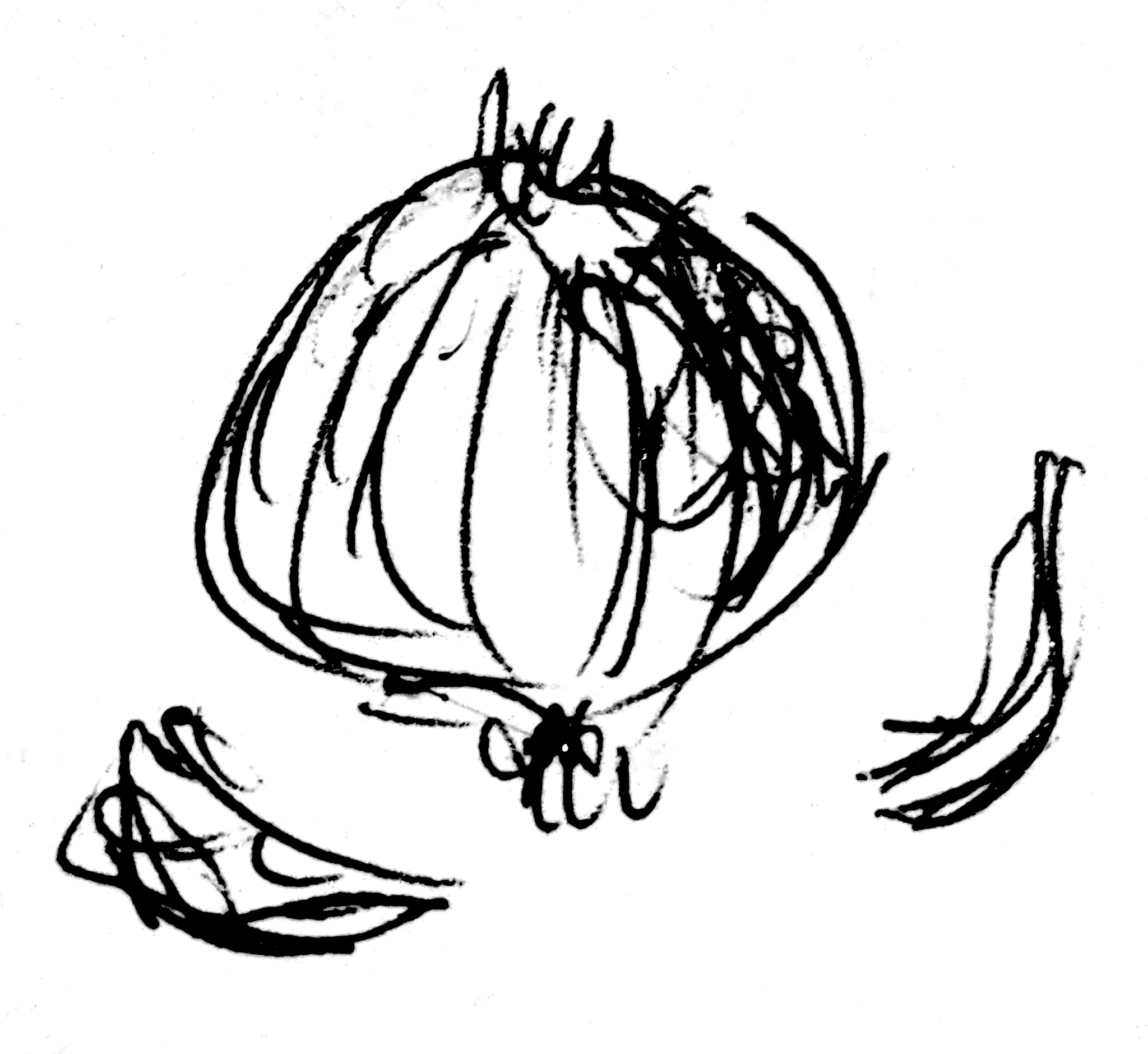If Rome wasn’t built in a day, then neither were companies, babies, and class assignments. It is the steady incrementalism of work that creates the final success. I call this approach “onionism”, as if one wanted to extract a gold pearl in the center of an onion. The best solution is to peel the layers, one by one, gently, and the pearl would reveal itself after sufficient effort. Getting to the center of the onion by using more radical approaches—slicing open the onion, blasting it with dynamite—would risk harming the gold pearl!
Procrastination is a devastating general problem, not so much that people feel like it should be bad but continue to do it anyway, but because it genuinely strips the doer from the relaxation and appreciation offered by doing a small bit every day. Much as good morale is maintained through positive base momentum1, finishing a task is most easily maintained through onionism. For exerting more effort in each of five days is more stressful than working a little over two weeks; stalling until the last day causes a disaster from the insurmountable wall that awaits the unfortunate student.
It is not true that because the amount of work is equal regardless of when it is done, the amount of suffering will be the same. Instead, pain grows worse than linearly depending on the size of the task. Ask a man to sleep normally for a week. Afterwards, ask him to stay awake for five days in a row, and then, force him to sleep for 48 hours without getting out of bed. Sleep is not a currency to be stored and used when necessary. Neither are assignments.
But maybe it doesn’t matter, as the assignment is completed nonetheless, whether with onionism or all at once? Unfortunately, not only is the result not the sole stakeholder; it cannot be separated from the process! If there is no difference between the onionist and procrastinator, why does the latter feel sick, disappointed? Because there is a mismatch between effort and result, that the procrastinator does not deserve the fruits of labor. Furthermore, since the assignment was completed in sort time, there is no way for the brain to process the task. Whereas the onionist’s mind is subconsciously dwelling on the assignment, suggesting creative ideas, the procrastinator must cram and hope that the result, without further refinement, is good enough. A sense of “I could’ve done more!” emerges from the ashes of laziness. The journey affects the result.
Perhaps the biggest struggle from converting to Onionism2 is the realization that one has missed out by not having known about Onionism earlier. The feeling of defeat, of what one could’ve done, the withdrawal is demoralizing. But the relief of Onionism, of spacing out a project, is happiness and gratitude enough to outweigh the regret of procrastination.
Footnotes
1 See my article "A Battle Against the Dying Flame" for more details.
2 See "Dichotomy of Self" for more details.
